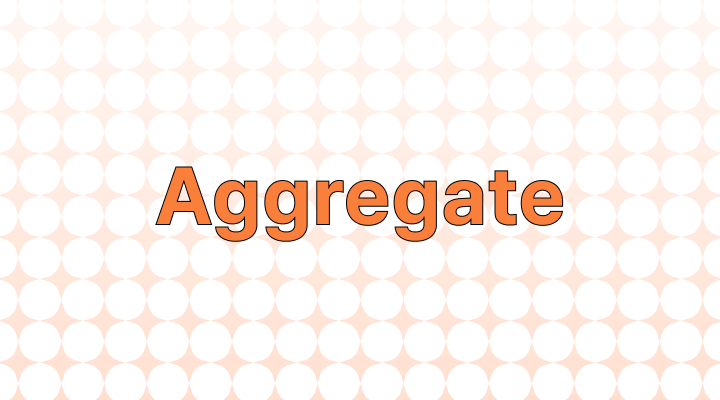Aggregate은 맥락에 따라 명사로 '합계', '골재' 혹은 형용사로 '총...' 혹은 동사로 '종합하다'를 의미합니다.
- 명사로 쓰여 여러 가지를 한데 더해서 얻어지는 것을 가리켜 '합계'를 의미합니다.
- 명사로 쓰여 건물에 사용되는 작은 돌들을 가리켜 '골재'를 의미합니다.
- 형용사로 쓰여 모두를 합친 것을 뜻하는 '총...'을 의미합니다.
- 동사로 쓰여 하나의 묶음이나 합으로 합친다는 뜻의 '종합하다'를 의미합니다.
영어 맞춤법 검사기 | 엔그램
영어 맞춤법 검사기를 이용하여 영어 논문, 자기소개서, 이력서, 이메일에 대한 첨삭을 받아보세요.

원어민들은 aggregate를 어떻게 사용하나요?
Aggregate의 사용 예시는 아래와 같습니다.
'합계'일 때
- The aggregate of all the scores determined the winner of the competition. (모든 접수의 합계가 대회의 우승자를 결정했다.)
- The financial report provides the aggregate of the company's earnings for the year. (재무 보고서에 회사가 한 해 동안 벌어들인 수입의 합계가 나타나있다.)
- The teacher calculated the aggregate of the students' test scores to determine the class average. (교사는 반 평균을 알아내기 위해 학생들의 시험 점수의 총합을 계산했다.)
'골재'일 때
- Builders selected a high-quality aggregate for the foundation of the house. (건축업자들은 집의 토대를 위해 고품질의 골재를 선택했다.)
- Mia examined the various aggregates available for the construction project. (미아는 건축 프로젝트에 쓸 수 있는 다양한 골재들을 검토했다.)
- Construction workers poured a mixture of cement and aggregate to create the sidewalk. (건설 인부들은 통행로를 만들기 위해 시멘트와 골재의 혼합물을 부었다.)
'총...'일 때
- The aggregate cost of the project includes both labor and material expenses. (프로젝트의 총 비용은 인건비와 자재 비용을 모두 포함한다.)
- The team achieved an impressive aggregate score in the championship. (팀은 챔피언십에서 인상적인 총 득점을 달성했다.)
- The aggregate demand for the product influenced production planning. (제품에 대한 총 수요는 생산 계획에 영향을 끼쳤다.)
'종합하다'일 때
- Mia decided to aggregate all the data into a comprehensive report. (미아는 종합 보고서에 모든 데이터를 종합하여 넣기로 했다.)
- The software allows users to aggregate information from multiple sources. (그 소프트웨어는 사용자들이 다양한 출처로부터의 정보를 종합할 수 있게 해준다.)
- The company aims to aggregate customer feedback to improve its products. (회사는 제품을 개선하기 위해 고객 피드백을 종합하고자 한다.)
AI 패러프레이징 | 엔그램
더이상 유의어와 동의어 사전을 찾을 필요없이 엔그램 패러프레이징을 이용하여 다양한 영어 표현을 사용해 보세요. 엔그램 패러프레이징은 AI를 이용하여 적절한 유의어와 동의어가 포함된 자연스러운 대체 문장을 작성해줍니다.

영어로 쓰긴 썼는데, 뭔가 이상한가요?
엔그램은 AI 기술을 활용하여 마치 원어민이쓴 것 같은 문장을 제안합니다. 영어로 쓴 문장의 문법, 철자, 문장 부호, 어순, 어휘 사용을 바로 잡고, 자연스러운 표현을 제안합니다.
영어 문법 검사기 / 영어 맞춤법 검사기 (무료) - 엔그램
엔그램의 무료 영어 문법 검사기와 영어 맞춤법 검사기를 이용하여 2% 부족한 번역기 결과를 첨삭받아보세요. 문법 및 맞춤법 오류와 어색한 영어 표현을 AI가 자연스럽게 고쳐드립니다.

참고자료:
https://dictionary.cambridge.org/dictionary/english/aggregate












